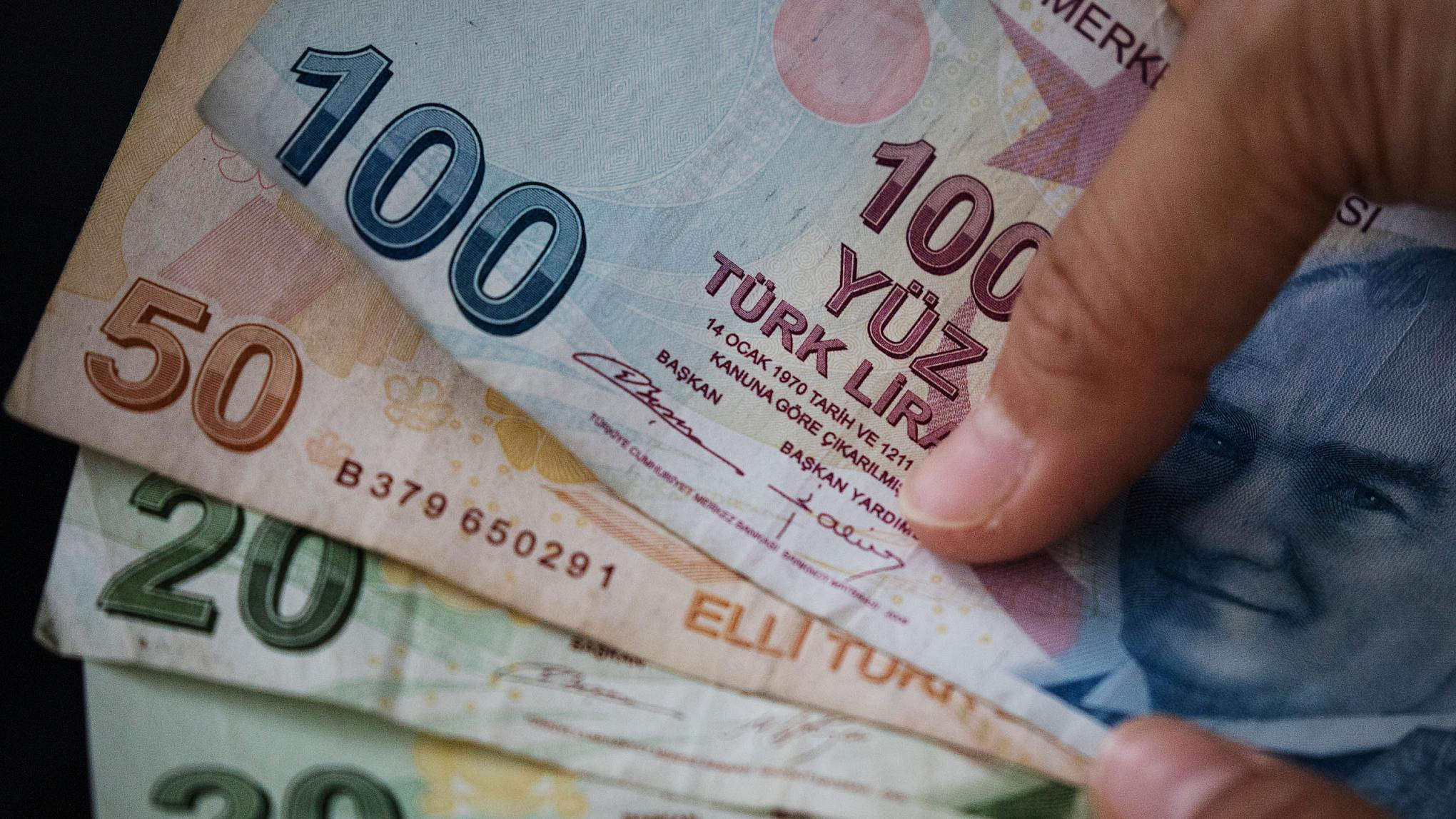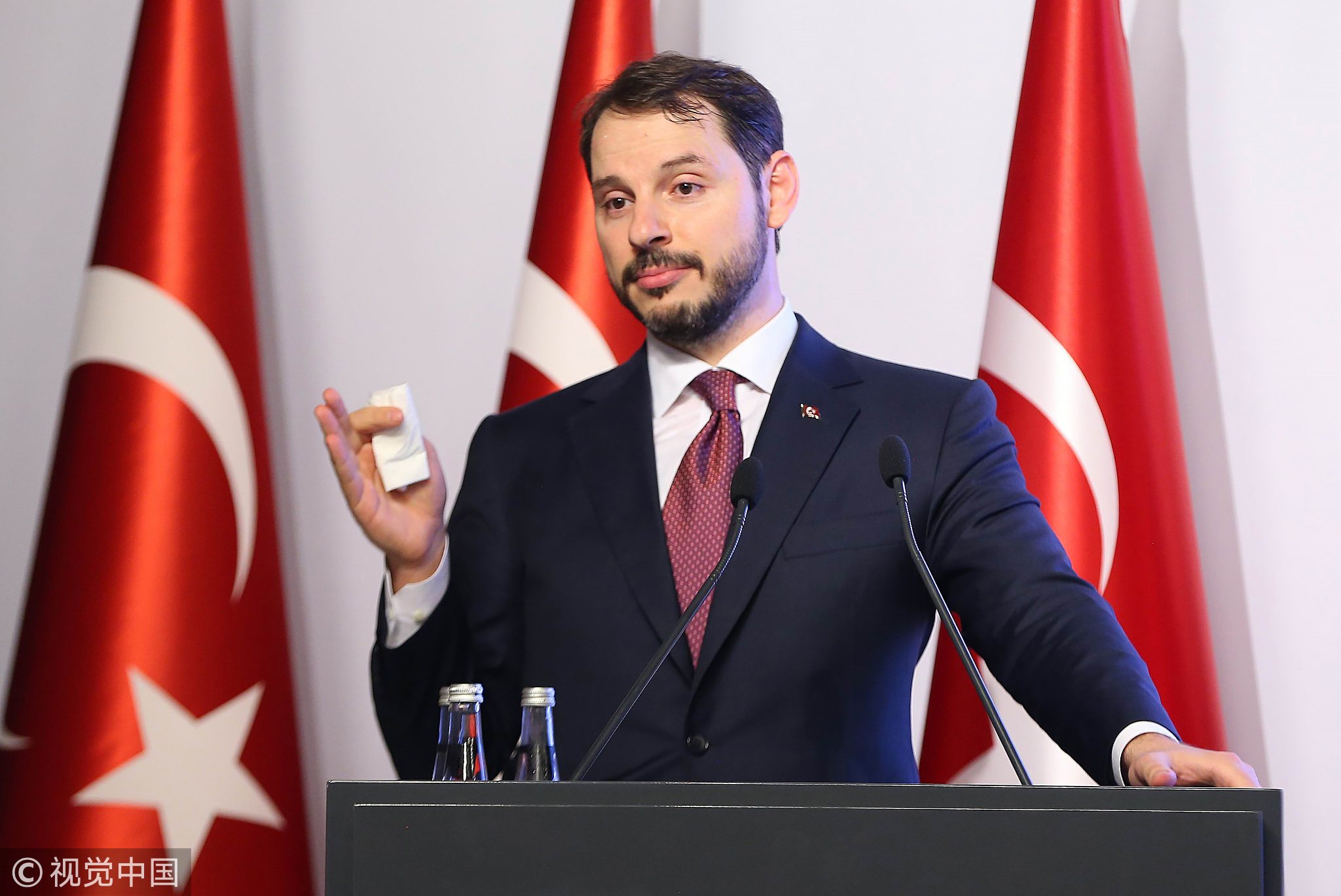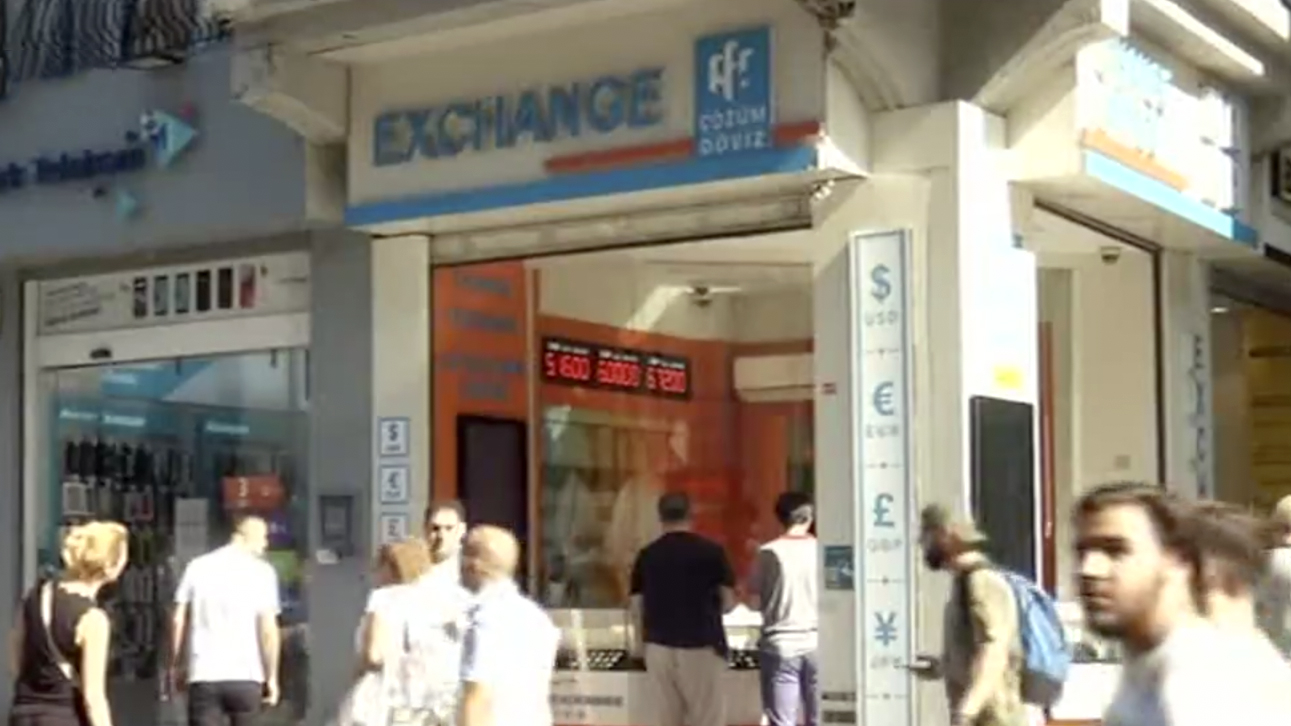
Opinions
14:59, 14-Aug-2018
Opinion: Currency crisis could continue if Turkey does not raise interest rates
Updated
14:26, 17-Aug-2018
CGTN’s Asia Today

The Turkish lira recovered some from the ground on Monday after reaching a new record low on Sunday. The apparent recovery came after the central bank announced it was injecting more money into the market and cutting reserve requirements for Turkish banks.
“I think the turmoil will last as long as the Turkish government won’t allow the central bank to increase the interest rate. This is one of the main benchmarks and measures that the international financial systems are looking at. If that doesn’t happen then I think the currency crisis is going to continue,” Middle East analyst Meir Javedanfar told CGTN.
The value of lira against the dollar has dropped 18 percent in the past week, after failed trade talks with Washington. The currency has fallen 45 percent in the last year.
Turkey's Treasury and Finance Minister Berat Albayrak said on Sunday that an action plan is coming into effect starting early Aug. 13 to support the lira, without giving more details.
Earlier on Friday, US President Donald Trump pledged to double the rate of tariffs on steel and aluminum imports from Turkey. The two NATO allies are at odds over the release of a 50-year-old American evangelical minister named Andrew Brunson, who has been imprisoned by Turkey since 2016 for his alleged link to a failed coup.

Berat Albayrak, Turkey's treasury and finance minister, speaks during a news conference in Istanbul, Aug. 10, 2018./ VCG Photo.
Berat Albayrak, Turkey's treasury and finance minister, speaks during a news conference in Istanbul, Aug. 10, 2018./ VCG Photo.
“America is one of the main trading partners of Turkey. Turkey exports steel and other products which President Donald Trump is trying to put a tariff on. So this is going to hit Turkey’s exports. Foreign currencies are usually from exports. The fewer exports you have, then less backing you have for lira,” says Javedanfar.
But many experts are arguing that the US is not the only reason for the collapse of the lira, saying its value has halved in the last year due to easy money and massive government spending.
Turkey’s foreign currency debt now stands at more than 50 percent of its GDP, according to estimates by the International Monetary Fund.
03:42

“The government has been borrowing too quickly and too much. It doesn’t have enough financial reserves to cover the amount it has borrowed. So, you borrow more than you have in your bank account, then the value of your currency falls,” Javedanfar explains.
Experts say soaring inflation is another factor that leads to the lira’s devaluation.
“Inflation is too much money chasing the few goods. We change the equation of too much money by trying to bring back the money into the banking system by increasing interest rates. But the Turkish leader Mr. Erdogan doesn’t allow that to happen,” says Javedanfar.
01:08

The lira's collapse has hit markets around the world, with fears that other economies in emerging countries could be next in line. It has been a sea of red for almost all markets in the world, especially in Asia. The Nikkei dropped nearly 2 percent as Asian shares slid amid worries over Turkey. The value of Indian rupee hit an all-time low, while the Indonesian rupiah drops to its lowest in almost three years. Other emerging currencies such as Russian rouble, South African rand and the Mexican and Argentine pesos that could be at risk also fell. Yet, the sell-off is not limited to emerging markets. The euro was also trading at a one-year low, as investors are concerned about the exposure of European banks which have big operations in Turkey.
The lira's crash has also pushed more investors into safe-haven currencies, such as the yen, which has increased to a six-week high. Economists are suggesting that Turkey should adopt higher interest rates to restrict money flow and to tackle the crisis. But Erdogan has been opposing that, preferring cheap credit from banks to bring more growth.
Now the fear is that, for the long-term, a plunging lira will lead to a full-blown economic crisis.
Script by Li Linxi
Asia Today is a 30-minute daily news magazine program airing at 1100 GMT and 1900 BJT. Aiming to tell Asian stories from an Asian perspective, Asia Today provides news and in-depth coverage on various topics from across the continent. The program also runs special series covering a wide range of issues of concern to people in Asia.

SITEMAP
Copyright © 2018 CGTN. Beijing ICP prepared NO.16065310-3
Copyright © 2018 CGTN. Beijing ICP prepared NO.16065310-3